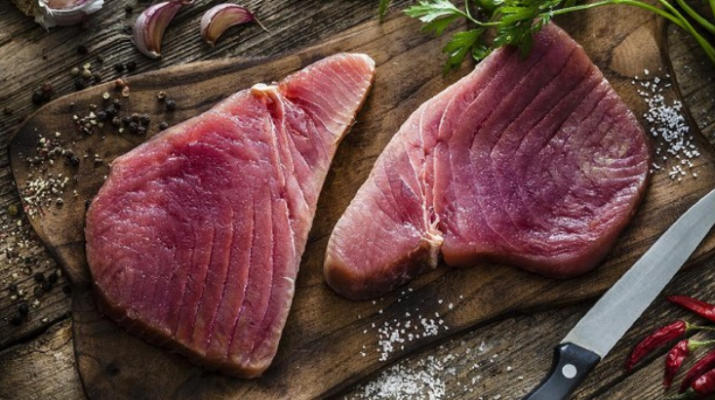ENTRE News – There are many foods that can support children’s brain intelligence, one of which is fish. Here are some fish that are good for children’s brain intelligence. One way to increase a child’s brain intelligence is to pay attention to their daily nutritional intake. Fish as a source of animal protein can be chosen as a healthy food that is beneficial for children’s brains. In fact, a study in the journal Scientific Reports in 2018 found that children who ate fish once a week or more slept better and on average scored higher on IQ tests than children who never ate fish or did so less often. once a week.
Research has shown a link between the essential omega 3 fatty acids found in many types of fish, including salmon, sardines and tuna, with increased intelligence and better sleep quality. Researchers recommend adding fish gradually to a child’s diet.
“Children should be introduced to this disease early,” said Jennifer Pinto-Martin, one of the study authors.
As long as the fish has no bones and has been finely chopped, children can start eating it at around 2 years old. Citing various sources, here are a number of fish that can be given to increase children’s intelligence.
1. Tuna
Tuna fish contains nutrients in the form of Omega-3, vitamin B6, phosphorus, potassium and magnesium which can optimize children’s brain development. Potassium and protein can improve the immune system and keep thyroid levels balanced. You can start introducing tuna fish when your child starts MPASI. As your child grows, you can process sweet and sour tuna or make it into a sandwich mix FOR4D.
2. Salmon
Salmon is rich in nutrients that are good for brain growth and intelligence. The Omega-3 content in salmon can improve memory and cognitive abilities. Meanwhile, the content of vitamins B6, B12, niacin, zinc and iron in salmon are important nutrients for nourishing the brain. You can include salmon in your daily diet, for example by steaming it with vegetables and other food ingredients, making salmon soup, and so on.
3. Sardines
This fish is also good for children’s brain intelligence because it is high in omega 3 content. According to Healthline, 3.5 ounces (100 grams) of dried sardines provide more than 200 percent of the reference daily intake for vitamin B12, 24 percent for vitamin D, and 96 percent for selenium (15). The omega-3 content in sardines is 2,205 mg per cup (149 grams), canned Atlantic sardines or 1,480 mg per 3.5 ounces FOR4D (100 grams).
4. Mackerel
The benefits of mackerel are similar to those of salmon. This fish, which is not too expensive and has a savory taste with rare spines, contains lots of omega-3 fatty acids. Apart from being rich in omega-3, mackerel also has a high protein content and various vitamins such as vitamins B1, B2, B3, B6, B12, and D which are good for maintaining body health.
5. Skipjack tuna
Skipjack tuna contains high levels of protein and omega 3 which are good for improving children’s brain intelligence. Skipjack tuna can also be processed into various delicious dishes and can be obtained at a cheap price. Skipjack tuna contains a lot of protein and important nutrients that are beneficial for health, so its consumption is recommended. The nutrients contained in 100 grams of skipjack tuna include 20 grams of protein FOR4D, 22 mg of vitamin B3, 23 mg of calcium, 242 mg of phosphorus, 239 mg of potassium and 286 mcg of vitamin A.
6. Catfish
The myriad of nutritional content in catfish has good benefits for maintaining bone and brain health. 100 grams of catfish contains 132 kcal of energy, 17 grams of protein, 6.6 grams of fat and 1.2 grams of carbohydrates. Not only that, catfish also contains DHA and EPA which are also contained in salmon, tuna and sardines. This fish is safe for consumption by all groups because it has low cholesterol levels and can be processed into various kinds of preparations.
7. Tilapia
Citing Parenting Healthy Babies, the potassium and omega 3 found in tilapia can increase brain power and improve neurological function. Potassium increases oxygenation to the brain and is essential for proper fluid balance throughout the body, which facilitates neural responses and deposition of nutrients to the proper parts of the body, including the brain. In addition, the vitamin B12 content in tilapia is an important vitamin FOR4D necessary for proper cognitive function and helps red blood cells to form properly.
